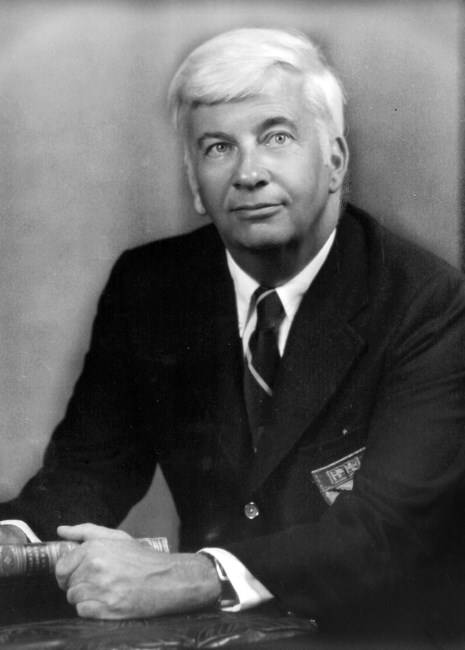
OBITUARIO
David W. Gow
19 febrero, 1924 – 19 diciembre, 2011

David Whitcomb Gow, former headmaster of The Gow School in South Wales, has died at the age of 87 at his home adjacent to the school campus. A gifted teacher, Mr. Gow had followed in the footsteps of his father, the late Peter Gow Jr., founder of The Gow School in 1926. Gow is the oldest college preparatory school in the world for dyslexic boys.
Born in 1924 in the house in which he later lived with his family during his years leading the Gow School and in which he died, David Gow graduated from The Gow School in 1941 and enrolled at Yale University, his father’s alma mater. His studies were interrupted by service in the United States Army Air Corps during World War II, but he received his B.A. from Yale as a member of the Class of 1945 and returned after graduate study at Yale to South Wales as a member of The Gow School faculty in 1947.
As a classroom teacher Mr. Gow taught Latin, history, and algebra in the course of his career, but it was in the teaching and continuing development of Reconstructive Language, The Gow School’s signature reading course, that he made his strongest professional mark. Reconstructive Language, based on principles developed by Peter Gow Jr. in the early 1920s in collaboration with neurologist Samuel Orton, is the central element in the Gow School’s program.
In 1958, following the death of Peter Gow Jr., Mr. Gow became assistant headmaster, and later he served as associate headmaster. Even before assuming his post as The Gow School’s third headmaster in 1977, Mr. Gow had been instrumental in transitioning the school from a small family business into an thriving not-for-profit institution. During this period Mr. Gow led a vigorous national fundraising campaign that transformed the school from a collection of converted country houses into an imposing quadrangle-centered campus of handsome brick buildings surrounded by many acres of playing fields and woodlands, all supported by a growing endowment.
By his retirement in 1990, Mr. Gow had become known as a leading expert on dyslexia education, and the Gow School had grown to an international enrollment of 160 students and over 30 faculty members. As headmaster he was often joined in his efforts to advance the school’s interests by his wife, Alice Gow, whose warmth and passion for the work of the school and the success of its students matched those of her husband; at one stage the couple even shared in the teaching of a course in public speaking and the development of social confidence. It was a point of pride to Mr. Gow that as headmaster he continued to maintain a full teaching load.
Deeply interested in the arts, Mr. Gow was for many years a subscriber to performances of the Buffalo Philharmonic and a member of the Albright Knox Art Gallery. He and Alice traveled extensively throughout North America, Europe, Asia, and the eastern Mediterranean, often with their children. In 2001 he published a memoir of his life and work, Gow: A Father, a Son, a School, which is notable not only for its meticulous and comprehensive history of The Gow School but for its engaging stories of growing up in Depression-era South Wales and of Mr. Gow’s military service.
Mr. Gow is survived by his wife, Alice Roberts Gow; his first marriage, to Persis Robertson, ended in divorce. He also leaves his children, Peter Gow of Dedham, Massachusetts, an educator; Persis Whalley of Alton Bay, New Hampshire, co-owner of an outdoor equipment company; Alexander R. Gow of Bow, New Hampshire, an automotive retail manager; David W. Gow Jr. of Belmont, Massachusetts, a college professor and neuroscience researcher; and Philip R. Gow of Chadds Ford, Pennsylvania, a financial services entrepreneur; twelve grandchildren; and two great-grandchildren.
In lieu of flowers donations may be made to The Gow School Chapel Project, 2491 Emery Road, South Wales, New York, 14139.
Muestre su apoyo
Comparta Un Recuerdo
Comparta
Un Obituario
Obtenga actualizaciones
Servicios
COMPARTA UN OBITUARIOCOMPARTA
- RECIBIR RECORDATORIOS
v.1.18.0